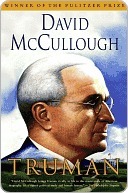More on this book
Community
Kindle Notes & Highlights
At the Presbyterian Sunday School Harry met a blond-haired, blue-eyed little girl named Elizabeth Wallace and decided she was the most entrancing creature he had ever seen.
“He had a real feeling for history,” Ethel said, “that it wasn’t something in a book, that it was part of life—a section of life or a former time, that it was of interest because it had to do with people.”
Unsure of exactly what he wanted in the new building, he decided he wouldn’t know until he had educated himself. Thus he set off by automobile—in his own car, at his own expense—on an amazing cross-country tour to look at public buildings of all kinds and to talk to their architects.
We worship money instead of honor. A billionaire, in our estimation, is much greater in these days in the eyes of the people than the public servant who works for public interest. It makes no difference if the billionaire rode to wealth on the sweat of little children and the blood of underpaid labor.
Truman was accustomed to looking after himself on his travels. He had always bought his own train tickets, carried his own bags, paid his own hotel bills. Traveling by automobile, he liked to be the one to decide which route to take and where to stop for the night. In the glove compartment of the gray Chrysler were the logs he kept, thin little paper-bound notebooks of the kind given away at Standard Oil gas stations. He
He asked for national compulsory health insurance to be funded by payroll deductions. Under the system, all citizens would receive medical and hospital service irrespective of their ability to pay.
It was a different time, and no one thought of taking a potshot at him. In fact, I think the Secret Service thoroughly enjoyed whenever he went on the Williamsburg, because he became my responsibility. They just went along for the ride.
he later wrote. “They [the Republicans] did not understand the worker, the farmer, the everyday person. . . . Most of them honestly believed that prosperity actually began at the top and would trickle down in due time to benefit all the people.”
“What I wanted to do personally for my own comfort and benefit was not important. What I could do to contribute to the welfare of the country was important. I had to enter the 1948 campaign for the presidency.”
“The full stature of this man,” he said, his eyes on Truman, “will only be proven by history, but I want to say here and now that there has never been a decision made under this man’s administration, affecting policies beyond our shores, that has not been in the best interest of this country. It is not the courage of these decisions that will live, but the integrity of the man.”
But courage and confidence, however important, would have been hardly enough without such other imponderable attributes as genuine sympathy for human feelings, humor, common sense, physical vitality—truly exceptional physical vitality for a man in his middle sixties—pride, determination, and a fundamental, unshakable Jacksonian faith in democracy, which to his mind mattered above all. Harry Truman trusted the American people.
When his train pulled into Missoula late at night and a crowd waited, hoping to catch a glimpse of him, he appeared in his pajamas and bathrobe. “I am sorry I had gone to bed,” he said. “But I thought you would like to see what I look like, even if I didn’t have on any clothes.”
On board with him through the day were Rayburn, Governor Jester, and Congressman Lyndon Johnson, candidate for the Senate, who had just been certified by the Democratic State Convention as having defeated his rival in the primary, former Governor Coke Stevenson, by a total of 87 votes out of roughly 1 million cast.
No one could come to Springfield without thinking of Abraham Lincoln, Truman said in his speech. I just wonder tonight, as I have wondered many times in the past, what Lincoln would say if he could see how far the Republican party has departed from the fundamental principles in which he so deeply believed. Lincoln came from the plain people and he always believed in them. .
A new census report confirmed that gains in income, standards of living, education, and housing since Truman took office were unparalleled in American history. As Truman would report in his final State of the Union message to Congress, on January 7, 1953, 62 million Americans had jobs, which was a gain of 11 million jobs in seven years. Unemployment had all but disappeared. Farm income, corporate income, and dividends were at an all-time high.
He had achieved less in civil rights than he had hoped, but he had created the epoch-making Commission on Civil Rights, ordered the desegregation of the armed services and the federal Civil Service, done more than any President since Lincoln to awaken American conscience to the issues of civil rights.
A sign at the depot now proclaimed: “Independence, the Home of Harry S. Truman, 33rd President of the United States”—a sign that annoyed Truman, who, with his concern for historical accuracy, insisted he was the thirty-second president since Cleveland served twice.
To Dean Acheson, Truman’s salient quality was his vitality. Here was “a man overflowing with life force, with incurable curiosity . . . no brooding image in a history book . . . [but] vigorous, powerful . . . full of the zest of life.”
Born in the Gilded age, the age of steam and gingerbread Gothic, Truman had lived to see a time of lost certainties and rocket trips to the moon. The arc of his life spanned more change in the world than in any prior period in history.


